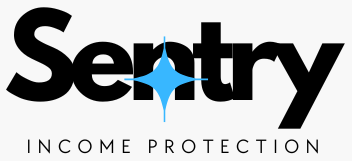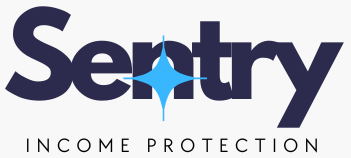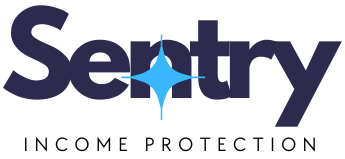Disability Insurance for Self Employed in Fort Worth TX
Call (469) 905-4422 for a free Disability Insurance quote! Let Sentry Income Protection safeguard your future.
Looking to protect your income as a self-employed professional? Disability insurance can be a lifeline, but understanding your options is key. We’ll break it down clearly. As a trusted independent disability insurance agency, Sentry Income Protection is here to help. Call us at 469-905-4422 we’re happy to chat!
The Risk Every Business Owner Faces
Operating your own business in Fort Worth means you've chosen independence over the predictable comfort of corporate employment. Whether you run a construction company working on projects in the Alliance corridor, maintain a dental practice near the Cultural District, or provide accounting services to clients in Sundance Square, your business success depends on one irreplaceable component: your ability to work.
Employees at American Airlines headquarters or the downtown oil and gas companies receive benefits packages that may include group disability coverage, paid leave, and HR support when health issues arise. As a Fort Worth business owner, you have none of that infrastructure. When injury or illness prevents you from working, the income stops, but your obligations to vendors, landlords, lenders, and employees continue uninterrupted.
Private disability insurance provides income replacement when health problems keep you from working. For self-employed professionals, it goes beyond personal income protection to become business survival insurance. Whether you're dealing with a construction injury, managing a serious diagnosis, or recovering from surgery, the right disability coverage can preserve both your business and your family's financial security during a challenging period.
Why Business Owners Need Different Protection
The safety net available to traditional employees simply doesn't exist for entrepreneurs. Social Security Disability uses an extremely restrictive definition, you must prove inability to perform any substantial gainful activity, and the application process often takes well over a year. Even successful applicants receive modest benefits that fall far short of covering business expenses and family needs.
Workers' compensation isn't mandatory for most Texas businesses, and unless you've specifically purchased coverage, you don't have it. There's no employer-sponsored plan, no disability benefits administrator, and no backup infrastructure when health problems arise. For Fort Worth's self-employed professionals, the support systems that W-2 employees depend on are completely absent. But, many times if not most, these benefits can’t hold a candle to what is actually available. Many of these group disability policies are what is called ANY occupation. If you can work any other job you may not be covered. And most are not portable. If you leave or are asked to leave the company. You lose your policy!
Private disability insurance addresses the gap with customizable coverage designed for working professionals and business owners. These policies typically replace between 50% and 70% of your income if disability prevents work. Benefits can continue for specific terms ranging from a couple of years to retirement age, depending on your policy design. Critically, private coverage uses practical disability definitions that recognize when you can't perform your actual profession, not just whether you could theoretically do some type of work.
Statistics show that approximately one in four people will experience a disabling condition at some point during their working years. Fort Worth business owners face the same risks as everyone else: accidents, illnesses, chronic conditions that limit work capacity. The difference is that your business has no contingency plan unless you build one. Quality disability coverage typically costs between 1% and 3% of annual income, a modest investment to protect everything you've built.
Independent Professionals: Protecting Your Practice
Consider a CPA with an office in the Tanglewood area, a dentist practicing near Texas Christian University, or a consultant operating from a home office in Ridglea Hills. For independent professionals, you are the practice. Clients engage you personally for your expertise and judgment. When you're unavailable due to health issues, there's no associate to see clients, no partner to maintain relationships, and no one to generate revenue.
Your practice expenses don't pause during recovery. The lease on your office space continues. Professional insurance, software licenses, continuing education requirements, and association dues all demand payment regardless of whether you're working. If you employ support staff, their compensation comes due every pay period. For independent practitioners, disability represents both a personal health crisis and an immediate threat to business viability.
This situation makes "own-occupation" disability coverage critically important. Most standard policies use "any-occupation" language, meaning benefits only pay if you're unable to perform any type of work for which you're reasonably qualified. A dentist who develops hand tremors might be unable to practice dentistry, but under any-occupation coverage, the insurer could deny benefits by claiming you're still capable of consulting, administrative work, or sales. You'd be unable to practice your profession while receiving zero benefits as your practice dissolves.
Own-occupation coverage fundamentally changes this outcome. These policies pay benefits if you cannot perform the substantial duties of your specific occupation, the actual work you were doing when disability occurred. A Fort Worth periodontist with own-occupation coverage receives benefits if unable to practice periodontics, regardless of what other theoretical work might be possible. For professionals who've invested years developing specialized skills and building a practice, this protection is essential, not optional.
Independent professionals should also evaluate business overhead expense insurance. Unlike standard disability coverage that replaces personal income, overhead policies reimburse specific business costs: facility rent, utilities, staff wages, and equipment payments. Coverage typically extends 12 to 24 months, providing breathing room to recover while maintaining the business foundation you'll return to. For an independent practitioner facing extended recovery, this coverage often determines whether the practice survives.
Business Owners with Teams: Maintaining Operations
If you operate a business with employees, perhaps a plumbing company serving the Westside, a multi-provider medical practice in Southlake, or an electrical contracting firm working throughout Tarrant County, your disability creates operational challenges beyond simple income replacement. The business might continue functioning in your absence, but only with adequate financial resources to adapt.
Day to day management needs coverage during your recovery. Perhaps your operations manager can handle increased responsibility, or you might need interim professional management. If you're the primary technical resource, the master electrician who handles complex commercial work or the physician who performs procedures, or the main sales guy or gal, you'll need to replace that production capability. Disability benefits can fund bringing in contract professionals, paying existing staff overtime for additional duties, or hiring temporary specialists to maintain service quality and client relationships.
Partnership arrangements introduce additional complexity requiring specific planning. Imagine you and a business partner each own 50% of a successful HVAC company serving Fort Worth's residential and commercial customers. Both partners work full-time, draw compensation, and share profits equally. Then one partner suffers a stroke with lengthy recovery and uncertain long-term capacity. Questions immediately arise: What happens to the disabled partner's ownership? How long does the business continue their salary when they can't contribute? Who controls major decisions?
Without advance planning, these questions breed conflict that can destroy both the business and the partnership relationship. Disability buy-sell agreements prevent this scenario by establishing clear procedures before crisis occurs. Funded with disability insurance on each partner, the agreement specifies that after a defined waiting period (typically 12 to 24 months), the disabled partner's ownership interest can be purchased by the continuing partner using insurance proceeds. The disabled partner receives fair value for their stake, the active partner gains clear control to continue operations, and the business avoids the dysfunction of unclear ownership during crisis.
For businesses with staff, overhead expense coverage functions differently than individual disability insurance. Rather than replacing the owner's personal income, it covers monthly operating expenses during the owner's disability. This maintains business operations, protects employee jobs, and preserves customer relationships while the owner recovers. For businesses with substantial fixed costs and employee obligations, this coverage can mean the difference between weathering the crisis and permanent closure.
Protecting Business Assets and Investments
Fort Worth business owners often have significant capital invested in their operations. You might be servicing an SBA equipment loan, making payments on a commercial property mortgage, or still paying off the practice acquisition loan you used to purchase an established business near Camp Bowie. These financial commitments don't disappear when you become disabled, but your income and capacity to make payments certainly can.
Adequate disability insurance ensures you can meet financial obligations even during periods when you cannot work. Without it, disabled business owners face devastating choices: selling business assets at distressed prices, raiding retirement accounts and incurring early withdrawal penalties, defaulting on business loans and facing foreclosure, or selling the entire business under pressure for a fraction of its true value. A Fort Worth business owner who spent fifteen years building a profitable operation could see that equity disappear during a disability lasting just months without proper coverage.
Financial institutions increasingly understand this risk. For substantial commercial loans or business acquisitions, many lenders now mandate disability insurance as a financing condition. They recognize that the borrower's health and work capacity directly impact loan repayment, and they want that risk properly managed. Even when lenders don't require it, maintaining appropriate disability coverage strengthens your financial profile and can lead to more favorable lending terms.
Consider the broader asset protection picture. Disability insurance gives you options during a health crisis. With proper coverage, you're not forced into panicked decisions that destroy business value. You can focus on treatment and recovery, maintain important business and client relationships, and make thoughtful strategic decisions about your business rather than desperate tactical moves driven by immediate cash needs.
Essential Policy Features and Options
Navigating disability insurance means evaluating various policy features and optional riders. Some prove essential for business owners, while others represent expensive additions that may not fit your specific situation. Here's what genuinely matters:
Own-Occupation vs. Any-Occupation Definitions: This single policy feature matters more than any other. Own occupation disability insurance policies provide benefits when you cannot perform the material duties of your specific profession, even if you might be capable of other work. Any-occupation policies only pay benefits if you're unable to perform any work you're reasonably suited for based on education and experience. The premium difference for own-occupation coverage is substantial, but for professionals with specialized expertise, attorneys, physicians, specialized contractors, the protection is worth the additional cost.
Coverage Duration: Policies specify how long benefits continue if you remain disabled. Standard options include two-year, five-year, to age 65, or to age 67 terms. Longer coverage periods cost more but provide better protection against permanent disabilities. A business owner in their 30s or 40s will pay considerably more for coverage extending to retirement age versus a five-year maximum, but that extended protection is what matters if disability proves permanent. Balance your other financial resources and risk tolerance when selecting coverage duration.
Waiting Period Before Benefits Begin: Called the elimination period, this is effectively your deductible measured in time rather than money. You wait this long after becoming disabled before benefits start. Common options are 30, 60, 90, or 180 days. Longer elimination periods substantially reduce premium costs because you're accepting more initial risk. If you maintain robust emergency reserves covering three to six months of expenses, selecting a 90 or 180-day elimination period often makes economic sense, reducing annual premium while preserving meaningful protection.
Partial and Residual Disability Provisions: These policy features pay proportional benefits when you return to work at reduced capacity. Perhaps you're a dentist who can only work half-time during recovery, or an accountant who can handle some client work but not a full practice load. Residual benefits pay a portion of your full benefit amount based on income reduction, providing financial support during the transition back to full capacity. Many quality policies include this as standard, but confirm its presence, especially if your profession permits gradual return scenarios.
Non-Cancelable vs. Guaranteed Renewable Terms: These similar sounding terms have different meanings. Guaranteed renewable means the insurer must renew your policy but can raise rates for your entire occupational class. Non-cancelable means your premium is locked, the insurer cannot increase your rate or modify coverage terms as long as premiums are paid timely. Non-cancelable coverage costs more but offers maximum premium stability. For healthy professionals establishing long-term coverage, the additional expense may provide valuable peace of mind.
Inflation Protection Riders: Cost of-living adjustment (COLA) riders increase your monthly benefit based on inflation indexes once you're collecting benefits. Without inflation protection, your benefit maintains its nominal value but steadily loses purchasing power over time. COLA riders add to premium costs but protect against inflation's impact during extended disabilities. For younger professionals purchasing coverage with many working years remaining, protection against inflation erosion often justifies the added expense.
Future Purchase Provisions: These riders, sometimes called guaranteed insurability options, allow you to increase coverage at specified future intervals without new medical underwriting. For young business owners expecting substantial income growth, someone earning modestly now but anticipating significant increases, this rider preserves the option to add coverage as income rises even if health problems develop in the meantime. This proves particularly valuable for professionals in early business-building stages.
Common Mistakes That Reduce Protection
Insufficient Coverage Amounts: Many self-employed individuals calculate coverage based on what they pay themselves in salary rather than total business income generation. If your business produces substantial revenue but you take modest compensation, don't limit insurance to just that salary figure. Consider what income level would enable you to maintain business operations, cover fixed costs, and meet obligations during disability. Policies typically cap at 50% to 70% of earnings, but use that full available capacity.
Incorrect Occupation Classification: Insurance companies classify occupations by risk level, which dramatically impacts premium costs. Physicians and accountants typically receive the most favorable (and lowest cost) classifications, while contractors performing physical work receive higher-risk classifications with corresponding higher premiums. Business owners sometimes unintentionally misrepresent their actual work. If you own a construction company but your daily work involves project management and estimating rather than physical labor, your application should accurately reflect your real activities, not the nature of work your company performs.
Waiting for Health Issues to Develop: Disability insurance requires medical underwriting before approval. Pre-existing health conditions often result in coverage exclusions, premium surcharges, or complete application denial. The controlled hypertension you're managing, the Type 2 diabetes diagnosis, the recurring back problems you've been treating, all these conditions affect your insurability and coverage terms. The optimal time to secure disability insurance is when you're healthy, before medical issues emerge. Once health problems appear, your coverage options become limited and significantly more expensive.
Attempting to Navigate Alone: Disability insurance involves complex policy language with meaningful variation between insurance carriers in contract terms, available features, pricing structures, and claims handling reputations. Working with an independent insurance advisor who specializes in disability coverage for business owners and represents multiple quality carriers ensures you're comparing genuine alternatives rather than settling for one company's products. Seek advisors with experience in your specific industry who understand the unique challenges self-employed professionals face.
Securing What You've Built in Fort Worth
Growing a successful business in Fort Worth requires capital, planning, and sustained effort. Whether you serve clients near the Stockyards, the bustling West 7th corridor, or the developing areas around Alliance Texas, your business represents far more than monthly income. It's financial security for your family, employment for your team, and the professional legacy you're building.
Your business planning accounts for competition, market shifts, and economic cycles. It probably doesn't account for you becoming unable to run it. Disability insurance isn't simply another operating expense, it's strategic risk management protecting your entire investment. It's the difference between a temporary health setback and permanent business failure, between maintaining financial stability during crisis and depleting everything you've accumulated, between preserving the operation you built and watching it collapse.
For Fort Worth's self-employed professionals, the relevant question isn't whether disability insurance fits comfortably in your budget. It's whether you can afford the catastrophic risk of operating without it. The coverage you establish now, while healthy and while business is thriving, could prove to be your most consequential business decision. Because the one scenario your business planning cannot overcome is you being physically unable to execute it.
Call 469-905-4422 for a Free Disability Insurance Quote! We represent all the top carriers and can provide an unbiased evaluation that meets your individual needs.
We specialize in private disability insurance for high-income professionals. Your information is secure and never shared.


